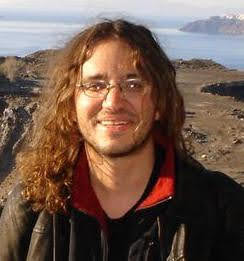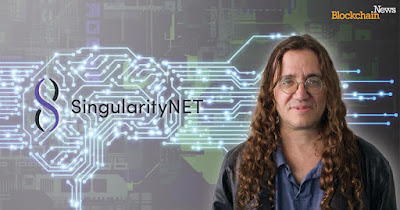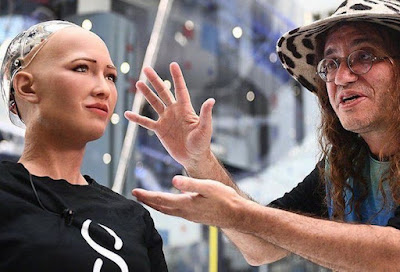Ben Goertzel is the founder and CEO of SingularityNET, a blockchain AI company, as well as the chairman of Novamente LLC, a research professor at Xiamen University's Fujian Key Lab for Brain-Like Intelligent Systems, the chief scientist of Mozi Health and Hanson Robotics in Shenzhen, China, and the chair of the OpenCog Foundation, Humanity+, and Artificial General Intelligence Society conference series.
Goertzel has long wanted to create a good artificial general intelligence and use it in bioinformatics, finance, gaming, and robotics.
He claims that, despite AI's current popularity, it is currently superior than specialists in a number of domains.
Goertzel divides AI advancement into three stages, each of which represents a step toward a global brain (Goertzel 2002, 2): • the intelligent Internet • the full-fledged Singularity Goertzel presented a lecture titled "Decentralized AI: The Power and the Necessity" at TEDxBerkeley in 2019.
He examines artificial intelligence in its present form as well as its future in this discussion.
"The relevance of decentralized control in leading AI to the next stages, the strength of decentralized AI," he emphasizes (Goertzel 2019a).
In the evolution of artificial intelligence, Goertzel distinguishes three types: artificial narrow intelligence, artificial broad intelligence, and artificial superintelligence.
Artificial narrow intelligence refers to machines that can "address extremely specific issues... better than humans" (Goertzel 2019a).
In certain restricted activities, such as chess and Go, this kind of AI has outperformed a human.
Ray Kurzweil, an American futurologist and inventor, coined the phrase "narrow AI." Artificial general intelligence (AGI) refers to intelligent computers that can "generate knowledge" in a variety of fields and have "humanlike autonomy." By 2029, according to Goertzel, this kind of AI will have reached the same level of intellect as humans.
Artificial superintelligence (ASI) is based on both narrow and broad AI, but it can also reprogram itself.
By 2045, he claims, this kind of AI will be smarter than the finest human brains in terms of "scientific innovation, general knowledge, and social abilities" (Goertzel 2019a).
According to Goertzel, Facebook, Google, and a number of colleges and companies are all actively working on AGI.
According to Goertzel, the shift from AI to AGI will occur within the next five to thirty years.
Goertzel is also interested in artificial intelligence-assisted life extension.
He thinks that artificial intelligence's exponential advancement will lead to technologies that will increase human life span and health eternally.
He predicts that by 2045, a singularity featuring a drastic increase in "human health span" would have occurred (Goertzel 2012).
Vernor Vinge popularized the term "singularity" in his 1993 article "The Coming Technological Singularity." Ray Kurzweil coined the phrase in his 2005 book The Singularity is Near.
The Technological Singularity, according to both writers, is the merging of machine and human intellect as a result of a fast development in new technologies, particularly robots and AI.
The thought of an impending singularity excites Goertzel.
SingularityNET is his major current initiative, which entails the construction of a worldwide network of artificial intelligence researchers interested in developing, sharing, and monetizing AI technology, software, and services.
By developing a decentralized protocol that enables a full stack AI solution, Goertzel has made a significant contribution to this endeavor.
SingularityNET, as a decentralized marketplace, provides a variety of AI technologies, including text generation, AI Opinion, iAnswer, Emotion Recognition, Market Trends, OpenCog Pattern Miner, and its own cryptocurrency, AGI token.
SingularityNET is presently cooperating with Domino's Pizza in Malaysia and Singapore (Khan 2019).
Domino's is interested in leveraging SingularityNET technologies to design a marketing plan, with the goal of providing the finest products and services to its consumers via the use of unique algorithms.
Domino's thinks that by incorporating the AGI ecosystem into their operations, they will be able to provide value and service in the food delivery market.
Goertzel has reacted to scientist Stephen Hawking's challenge, which claimed that AI might lead to the extinction of human civilization.
Given the current situation, artificial super intelligence's mental state will be based on past AI generations, thus "selling, spying, murdering, and gambling are the key aims and values in the mind of the first super intelligence," according to Goertzel (Goertzel 2019b).
He acknowledges that if humans desire compassionate AI, they must first improve their own treatment of one another.
With four years, Goertzel worked for Hanson Robotics in Hong Kong.
He collaborated with Sophia, Einstein, and Han, three well-known robots.
"Great platforms for experimenting with AI algorithms, including cognitive architectures like OpenCog that aim at human-level AI," he added of the robots (Goertzel 2018).
Goertzel argues that essential human values may be retained for future generations in Sophia-like robot creatures after the Technological Singularity.
Decentralized networks like SingularityNET and OpenCog, according to Goertzel, provide "AIs with human-like values," reducing AI hazards to humanity (Goertzel 2018).
Because human values are complicated in nature, Goertzel feels that encoding them as a rule list is wasteful.
Brain-computer interfacing (BCI) and emotional interfacing are two ways Goertzel offers.
Humans will become "cyborgs," with their brains physically linked to computational-intelligence modules, and the machine components of the cyborgs will be able to read the moral-value-evaluation structures of the human mind directly from the biological components of the cyborgs (Goertzel 2018).
Goertzel uses Elon Musk's Neuralink as an example.
Because it entails invasive trials with human brains and a lot of unknowns, Goertzel doubts that this strategy will succeed.
"Emotional and spiritual connections between people and AIs, rather than Ethernet cables or Wifi signals, are used to link human and AI brains," according to the second method (Goertzel 2018).
To practice human values, he proposes that AIs participate in emotional and social connection with humans via face expression detection and mirroring, eye contact, and voice-based emotion recognition.
To that end, Goertzel collaborated with SingularityNET, Hanson AI, and Lia Inc on the "Loving AI" research project, which aims to assist artificial intelligences speak and form intimate connections with humans.
A funny video of actor Will Smith on a date with Sophia the Robot is presently available on the Loving AI website.
Sophia can already make sixty facial expressions and understand human language and emotions, according to the video of the date.
When linked to a network like SingularityNET, humanoid robots like Sophia obtain "ethical insights and breakthroughs...
via language," according to Goertzel (Goertzel 2018).
Then, through a shared internet "mindcloud," robots and AIs may share what they've learnt.
Goertzel is also the chair of the Artificial General Intelligence Society's Conference Series on Artificial General Intelligence, which has been conducted yearly since 2008.
The Journal of Artificial General Intelligence is a peer-reviewed open-access academic periodical published by the organization. Goertzel is the editor of the conference proceedings series.
You may also want to read more about Artificial Intelligence here.
See also:
General and Narrow AI; Superintelligence; Technological Singularity.
Further Reading:
Goertzel, Ben. 2002. Creating Internet Intelligence: Wild Computing, Distributed Digital Consciousness, and the Emerging Global Brain. New York: Springer.
Goertzel, Ben. 2012. “Radically Expanding the Human Health Span.” TEDxHKUST. https://www.youtube.com/watch?v=IMUbRPvcB54.
Goertzel, Ben. 2017. “Sophia and SingularityNET: Q&A.” H+ Magazine, November 5, 2017. https://hplusmagazine.com/2017/11/05/sophia-singularitynet-qa/.
Goertzel, Ben. 2018. “Emotionally Savvy Robots: Key to a Human-Friendly Singularity.” https://www.hansonrobotics.com/emotionally-savvy-robots-key-to-a-human-friendly-singularity/.
Goertzel, Ben. 2019a. “Decentralized AI: The Power and the Necessity.” TEDxBerkeley, March 9, 2019. https://www.youtube.com/watch?v=r4manxX5U-0.
Goertzel, Ben. 2019b. “Will Artificial Intelligence Kill Us?” July 31, 2019. https://www.youtube.com/watch?v=TDClKEORtko.
Goertzel, Ben, and Stephan Vladimir Bugaj. 2006. The Path to Posthumanity: 21st Century Technology and Its Radical Implications for Mind, Society, and Reality. Bethesda, MD: Academica Press.
Khan, Arif. 2019. “SingularityNET and Domino’s Pizza Announce a Strategic Partnership.” https://blog.singularitynet.io/singularitynet-and-dominos-pizza-announce-a-strategic-partnership-cbbe21f80fc7.
Vinge, Vernor. 1993. “The Coming Technological Singularity: How to Survive in the Post-Human Era.” In Vision 21: Interdisciplinary Science and Engineering in the Era of Cyberspace, 11–22. NASA: Lewis Research Center





